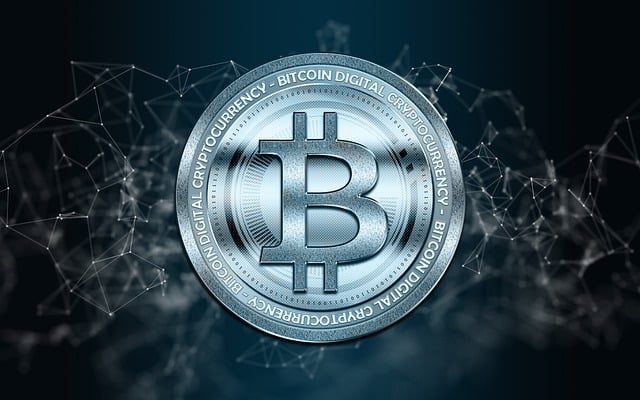The Rise of AI Bot Trading: Revolutionizing Financial Markets
In the rapidly evolving landscape of financial markets, artificial intelligence (AI) has emerged as a pivotal force, transforming traditional trading methodologies into automated, algorithm-driven systems. AI bot trading is no longer a novel concept but a mainstream trend that is changing how traders and investors engage with their portfolios. This article delves into the intricate world of AI bot trading, exploring its mechanisms, benefits, challenges, and future prospects.

Understanding AI Bot Trading
At its core, AI bot trading involves utilizing artificial intelligence and machine learning algorithms to execute trades on behalf of investors. Unlike traditional trading, which relies heavily on human decision-making and intuition, AI-driven systems analyze vast amounts of data to identify patterns and predict market movements. This analytical prowess opens avenues that were previously inaccessible to most traders.
How AI Bots Operate
AI trading bots employ various algorithms, each designed with specific trading strategies in mind. Here are the primary components that define their operation:
Data Collection: AI trading bots gather data from numerous sources, including market news, historical prices, and economic indicators. This data serves as the foundation for making informed trading decisions.
Analysis: Leveraging machine learning techniques, AI bots analyze the collected data to discern trends and correlations that may not be immediately apparent to human traders. They identify patterns that traditionally elude human intuition.
Execution: Once a viable trading opportunity is identified, the bot executes trades automatically, often at lightning speed. This ability to act quickly is a striking advantage over traditional trading methods.
Continuous Learning: One of the most remarkable aspects of AI bots is their capacity for continuous learning. As they interact with the market and gather more data, they refine their algorithms, enhancing their predictive capabilities.
Benefits of AI Bot Trading
The allure of AI bot trading lies in its plethora of advantages.
Increased Efficiency: AI bots can process and analyze data at a speed far surpassing human capabilities. This efficiency allows them to capitalize on fleeting market opportunities that may vanish within seconds.
Emotionless Trading: Trading can often be influenced by emotions such as fear and greed. AI bots eliminate emotional biases, making decisions purely based on data and algorithms. In my opinion, this is one of the vital strengths of AI, promoting rational decision-making.
Accessibility: AI bot trading has democratized access to sophisticated trading strategies. Individual investors can leverage these tools that were once exclusive to institutional traders, thus leveling the playing field.
24/7 Trading: Unlike human traders, AI bots are tireless. They can operate continuously across different time zones, capturing opportunities that emerge in various global markets.
Challenges and Risks
Despite the myriad benefits, AI bot trading is not without its challenges. As much as I admire this technology, it's essential to address the potential pitfalls and risks involved.
Market Volatility: AI bots may assimilate historical data to make predictions, but sudden market shifts can render their algorithms ineffective. Black swan events, for example, can lead to substantial losses.
Dependence on Technology: Reliance on AI systems creates vulnerabilities. Technical failures, system crashes, or cyber-attacks can disrupt trading activities, potentially resulting in significant financial losses.
Data Quality: The efficacy of AI bots is directly tied to the quality of data they analyze. Inaccurate or misleading data can yield poor trading decisions. It's imperative for developers to incorporate rigorous data verification processes.
Regulatory Concerns: The rise of AI trading raises several regulatory questions. How should regulators approach AI-driven trading? What liability do developers hold? In my view, establishing a regulatory framework is crucial to safeguard investors and uphold market integrity.
Future Trends in AI Bot Trading
The future of AI bot trading is filled with innovation and promise. Here are some trends to watch closely:
Integration of Advanced Technologies: The convergence of AI with other emerging technologies like blockchain and quantum computing could redefine trading strategies, providing even greater efficiencies.
Personalization: Future developments will likely lead to AI bots that can tailor strategies to individual investor profiles, preferences, and risk tolerances, enhancing user experience.
Enhanced Collaboration: The relationship between human traders and AI bots will evolve into a synergistic partnership. Traders may increasingly rely on bots for data analysis while making nuanced decisions based on broader economic insights.
Focus on Ethical AI: As AI becomes more pervasive, there will be an increased emphasis on ethical AI development. This includes ensuring transparency and accountability in trading algorithms—a challenge that the industry must prioritize.
Conclusion: Embracing the AI Revolution in Trading
AI bot trading represents a paradigm shift in the financial markets, providing potent tools that empower traders to make data-driven decisions while minimizing emotional biases. From increased efficiency to enhanced accessibility, the benefits are compelling. However, as with any technological advancement, challenges and risks abound. The imperative remains for stakeholders within the financial ecosystem—traders, firms, and regulators—to collaborate in navigating this new frontier responsibly.
As we stand on the brink of a new era in trading, it's essential to remain vigilant, informed, and open-minded about the capabilities and limitations of AI. The journey of AI bot trading is just beginning, and I believe that to fully harness its potential, we must embrace innovation while prioritizing ethical considerations. As the market continues to evolve, those who adapt and leverage AI intelligently will likely lead the way into a future where trading becomes more efficient, reliable, and inclusive.
